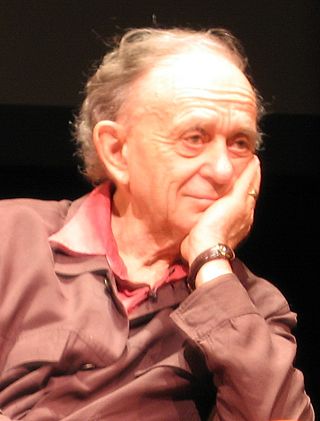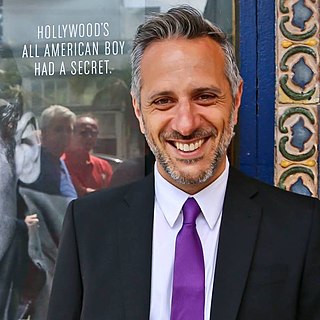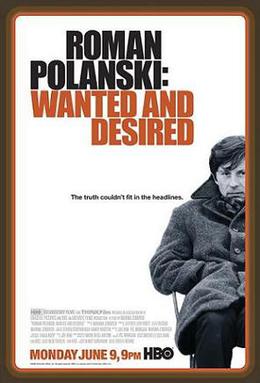Lance Bangs is an American filmmaker and music video director. He directed the David Cross film Let America Laugh. Bangs has also been heavily involved in the filming and production of MTV's Jackass television series and its subsequent movies.

Jonas Mekas was a Lithuanian-American filmmaker, poet, and artist who has been called "the godfather of American avant-garde cinema". Mekas's work has been exhibited in museums and at festivals worldwide. Mekas was active in New York City, where he co-founded Anthology Film Archives, The Film-Makers' Cooperative, and the journal Film Culture. He was also the first film critic for The Village Voice.

Donn Alan Pennebaker was an American documentary filmmaker and one of the pioneers of direct cinema. Performing arts and politics were his primary subjects. In 2013, the Academy of Motion Picture Arts and Sciences recognized his body of work with an Academy Honorary Award. Pennebaker was called by The Independent as "arguably the pre-eminent chronicler of Sixties counterculture".
James Howard Hatfield was an American author.

Frederick Wiseman is an American filmmaker, documentarian, and theater director. His work is primarily about exploring American institutions. In 2017, The New York Times called him "one of the most important and original filmmakers working today".

Ondi Doane Timoner is an American filmmaker and the founder and chief executive officer of Interloper Films, a production company located in Pasadena, California.
Horns and Halos is a 2002 documentary film directed by Suki Hawley and Michael Galinsky. The film is primarily about the difficult road the author and publisher travelled to bring Fortunate Son, a controversial biography of George W. Bush to bookshelves again. The film began when the filmmakers got a press release saying that Sander Hicks would be republishing the discredited bio. They followed the process of trying to bring the book back to shelves. After seeing the film at the Rotterdam Film Festival Matthew Tempest wrote in the Guardian, "With stunning revelations of presidential misdeeds, and the Watergate-style forces at hand to see the book is discredited, this documentary is a rolling masterclass on the disturbing complicity of media, money and mendacity."

The Moving Picture Institute (MPI) is an American non-profit organization and film production company founded in 2005 by Thor Halvorssen, who was also one of the producers for some of their movies. Its current president is Rob Pfaltzgraff.

Jeffrey Schwarz is an American Emmy Award-winning film producer, director, and editor. He is known for an extensive body of documentary work including Commitment to Life, Boulevard! A Hollywood Story, The Fabulous Allan Carr, Tab Hunter Confidential, I Am Divine, Vito, Wrangler: Anatomy of an Icon and Spine Tingler! The William Castle Story.

Roman Polanski: Wanted and Desired is a 2008 documentary film directed by Marina Zenovich. It concerns film director Roman Polanski and his sexual abuse case. It examines the events that led to Polanski fleeing the United States after being embroiled in a controversial trial, and his unstable reunion with his adopted country. A follow-up to the film, also directed by Zenovich, titled Roman Polanski: Odd Man Out was released on 26 March 2013, detailing Polanski's successful legal battle to avoid extradition to the US, a battle that took place after Roman Polanski: Wanted and Desired came out.
The Brooklyn Film Festival(BFF), prior to 2011 called the Brooklyn International Film Festival(BiFF) is an independent film festival held every June in New York City. Started by Marco Ursino, Susan Mackell, Abe Schrager, and Mario Pegoraro in 1998, its mission is to “discover, expose, and promote independent filmmakers while drawing worldwide attention to Brooklyn as a center for cinema." Its base is South 4th Street, Williamsburg.

Gail Dolgin was an American filmmaker. She was nominated for the Academy Award for Daughter from Danang, and The Barber of Birmingham. Daughter from Danang also won the Sundance Grand Jury Prize for Best Documentary.
Big Sky Documentary Film Festival is an annual non-fiction film festival held in Missoula, Montana each February. The event showcases documentary films from around the world. The festival first began in 2003 as a seven-day event. It is now a ten-day event. The Big Sky Documentary Film Festival is the largest cinema event in Montana. The festival presents an average of 150 non-fiction films annually at the historic Wilma Theater, The Top Hat, The Roxy Theater, and Crystal Theater in downtown Missoula.

Nicolás Pereda is a Mexican-Canadian film director. To date, he has directed nine features and three short films.

Joe Brewster is an American psychiatrist and filmmaker who directs and produces fiction films, documentaries and new media focused on the experiences of communities of color.
Jeffrey Charles Ragsdale was an American author, documentary filmmaker, actor and stand-up comedian. In 2011 he posted a flyer in New York City as a "social experiment", stating his phone number and asking people to call him, describing himself as "Jeff, one lonely guy". He was overwhelmed with thousands of calls after photos of the flyer were posted on the internet. The experience led to his 2012 book Jeff, One Lonely Guy, and indirectly to a 2013 pilot episode for a reality television show, Being Noticed, and a starring role in the 2014 documentary Hotline.

Michael Galinsky is an American filmmaker, cinematographer, photographer, and musician who has produced and directed a number of documentaries, several of them in collaboration with his now-wife, Suki Hawley. With their partner David Beilinson, they run a production and distribution company called Rumur.

Fray is a 2012 independent film starring Bryan Kaplan and Marisa Costa. It was written and directed by Geoff Ryan, with cinematography by Jarin Blaschke, and produced by Jodi Redmond.

Jill Bauer is a Hearst and SPJ journalist, documentarian and non-fiction author. Bauer and Ronna Gradus co-directed two documentary films, Sexy Baby (2012) and Hot Girls Wanted (2015). Bauer also authored a non-fiction humor book called From ‘I Do’ to ‘I’ll Sue’: An Irreverent Compendium for Survivors of Divorce. Sexy Baby won the Founders Prize for Best Film by a First Time Director at the 2012 Traverse City Film Festival and Hot Girls Wanted was nominated in 2015 for a Primetime Emmy and the Grand Jury Prize at the Sundance Film Festival.

Suki Hawley is an American indie filmmaker and a partner in the production and distribution company RUMUR. Either solo or with Michael Galinsky, she has directed low-budget fictional narratives but has mostly concentrated on documentaries in recent years.















